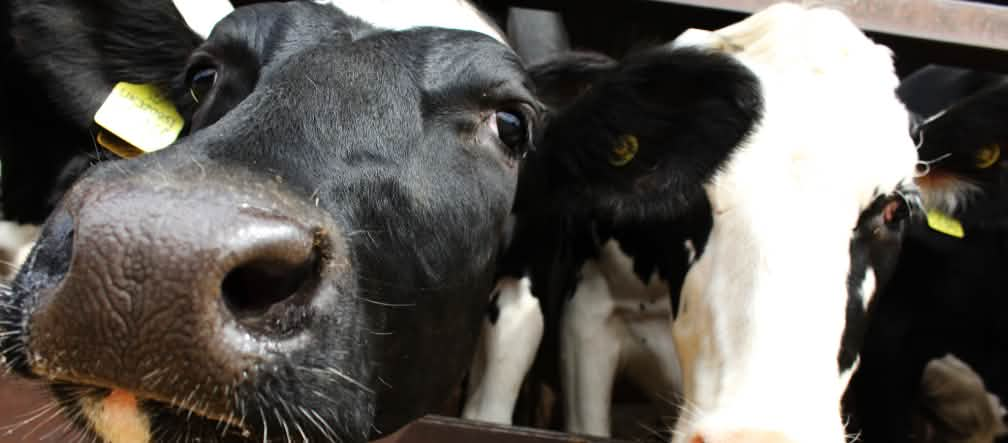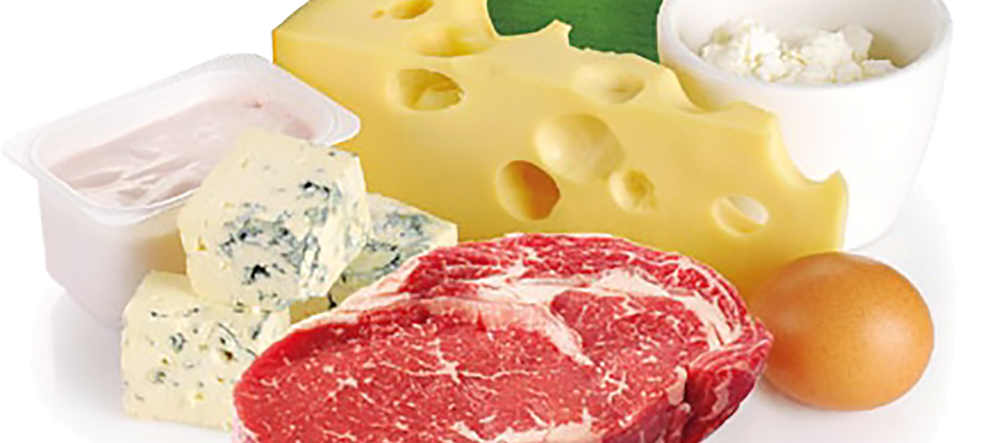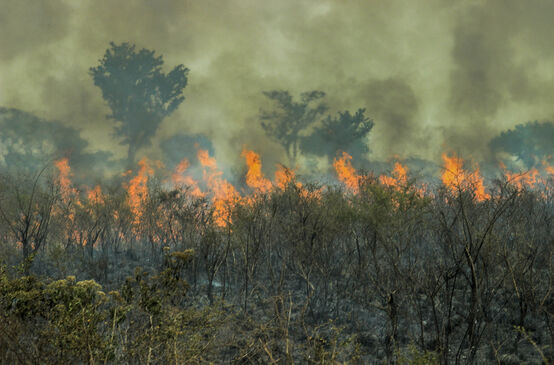Industrialized meat production
Burgers, steaks, chicken wings – more and more meat is ending up on our dinner tables. This not only means untold suffering for billions of animals that spend short, miserable lives in factory farms and cramped cages, it is also a major driver of deforestation. Soy plantations that grow livestock feed cover vast areas of South America, while cattle pastures are eating their way deeper into the rainforests.
What are the consequences of our meat habit for the environment and our climate? And what can we do about the problem?
5-minute info – industrialized meat production
The issue – our appetite for meat
Most people in rich countries consider meat to be essential to a good meal. That holds especially true for Americans, who each consumed 90 kilograms of meat in 2014 – in the same year, the global average was 34 kilograms. There are 19 billion chickens, 1.4 billion cows, 1 billion pigs and 1 billion sheep on the planet at any given time – that’s three head of livestock for every person.
Maintaining such a huge livestock population has a very high price: 26 percent of the world’s ice-free land is used for livestock grazing and 33 percent of the world’s cropland is dedicated to growing livestock feed. Instead of feeding humans, a significant share of the world’s wheat, corn, barley and soybeans is thus used to raise livestock. Soybean meal is the largest source of protein animal feed in the world, and the areas needed for its production are expanding into fragile ecosystems such as the Brazilian Cerrado and the Amazon.
The impact – deforestation, monocultures, climate change
Landscapes once covered by rainforest and savannah are now marked by endless industrial agriculture spaces. More than 75 million hectares are devoted to growing soy – an area three times the size of the United Kingdom. Indigenous people are frequently displaced when their forests are bulldozed or torched, and those that remain are often in grave danger due to pesticide exposure: Roundup-Ready Monsanto GMO soybean plants are grown on 31 to 38 percent of the total planted area in Brazil, Argentina, Paraguay and Uruguay. The active ingredient in Roundup is glyphosate, an herbicide that is suspected of causing cancer and damaging human DNA.
Producing meat has a profound impact on the climate: with methane from bovine stomachs, carbon released by deforestation and fossil-fueled machinery, and nitrous oxide released by synthetic fertilizer, animal agriculture accounts for 18 percent of the world’s greenhouse gas emissions.
The solution – plant power and planned indulgences
Our food choices have a direct impact on the future of the rainforests: the animal products we eat account for 72 percent of all food-related greenhouse gas emissions. Their production also requires many times more farmland than plant products for human consumption.
Here is how you can help protect your health, the environment and the climate:
- Eat alternatives to meat and dairy products: Seitan steaks, lupin spreads, soy milk and other tasty and nutritious alternatives to animal products can be found in virtually any supermarket.
- If you must eat meat, make it an occasional treat: If you are not ready to give up meat entirely, reduce your consumption as much as possible and make meat a planned indulgence. Choosing organic meat can help further reduce the environmental impact of your diet.
- Say yes to soy products: Only about two percent of the world's soy crop is processed into tofu, soy yogurt and similar products. Soy for human consumption is mostly grown in Europe and does not drive deforestation.
- Stop food waste: Consumers in North America and Europe each waste between 95 and 110 kg of food a year – much of it meat. Planning your grocery shopping with care can literally save lives.
- Speak out: Tens of thousands have taken part in street protests such as the March Against Monsanto to pressure policymakers and advocate forms of agriculture that take human health, animal welfare and climate protection into account. Taking part in online petitions and writing to your elected representatives can also make a real difference.
Your signature can make a real difference. Our petitions expose destructive projects and name the perpetrators. Together we can have an even greater impact!





